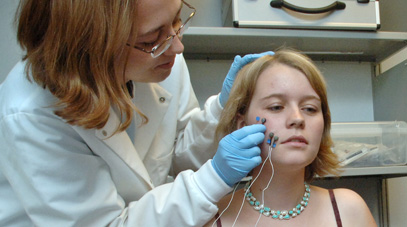Announcements
Organizational StructureThe Office of Human Research Ethics (OHRE) is responsible for ethical and regulatory oversight of research at the University of North Carolina at Chapel Hill that involves human subjects. OHRE supports and oversees the work of the Institutional Review Boards (IRBs). The IRBs at the University of North Carolina at Chapel Hill are organized by area of expertise. The IRBs are: Biomedical IRB (Committees A through D): Reviews research involving School of Medicine, School of Pharmacy, UNC Hospitals, and research in other units that involves biomedical interventions. Expertise is focused on medical, surgical, physiological or pharmacological studies. Includes research with drugs, devices, counseling, or other interventions. Studies that require dental expertise are reviewed by Biomedical Committee B. Non-Biomedical IRB (Committee E): A combination of the former Behavioral and Public Health-Nursing IRBs. Reviews research in psychology, child development, education, anthropology, information and library science, social work, journalism, and many other disciplines under Academic Affairs, as well as studies from the School of Public Health, School of Nursing, nursing-related studies at UNC Hospitals, non-medical research from the Injury Prevention Research Center, Carolina Population Center, Health Promotion Disease Prevention, and Sheps Center. Expertise is focused on research in behavioral and social sciences, the humanities, epidemiology and other research in a public health or nursing context. IRB Safety Committee: This committee handles submissions that are atypical or otherwise outside the norm, as well as Unanticipated Problems Involving Risks to Subjects or Others (UPIRSO) and other compliance issues, Humanitarian Use Devices (HUDs), emergency research on single patients under a single subject treatment IND. It meets monthly but can be convened rapidly should circumstances require. |
ContactCB# 7097 Ph: 919-966-3113 Upcoming events
Quick Links
Follow us on Twitter:
|


